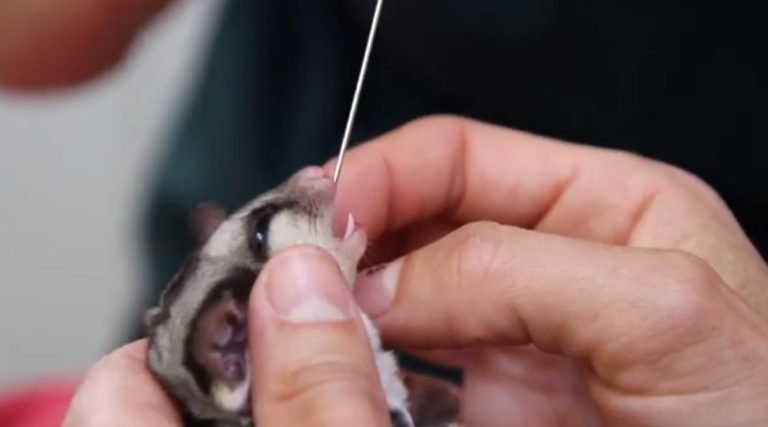Will Sugar Gliders Run Away
Will Sugar Gliders Run Away?
Sugar gliders are small nocturnal marsupials that have become popular pets in recent years. People are drawn to their adorable appearance and playful nature. However, one concern that potential owners often have is whether sugar gliders will run away. After all, these tiny creatures are known for their agile movements and ability to glide through the air. In this article, we will explore the reasons behind sugar gliders running away and provide you with some valuable tips on how to prevent such incidents from happening.
Sugar gliders are naturally curious and love to explore their surroundings. While they generally bond well with their owners, there are instances where they may feel the urge to run away. It is important to understand the reasons behind this behavior to ensure a safe and secure environment for your furry friend.
Reasons why Sugar Gliders may run away
1. Fear or Anxiety
Sugar gliders are sensitive animals and can easily get scared or stressed. Factors like loud noises, sudden movements, or being handled by unfamiliar individuals can cause them to feel threatened. In such situations, they may try to escape or hide in a bid to protect themselves. It is crucial to foster a calm and safe environment for your sugar glider to minimize the chances of them running away.
2. Lack of Bonding or Socialization
Sugar gliders are social creatures and require companionship. If they feel lonely or neglected, they may attempt to escape to seek out other gliders or human interaction. It is vital to spend quality time with your sugar glider, providing them with plenty of socialization and enrichment activities. This helps establish a strong bond and reduces the likelihood of them running away.
3. Boredom or Lack of Stimulation
Sugar gliders are intelligent creatures and need mental and physical stimulation to stay engaged. If they are kept in a monotonous environment without enough toys, activities, or space to explore, they may become bored and attempt to escape in search of more excitement. Providing them with a stimulating and enriching environment can help prevent such behavior.
4. Improper Enclosure
Having a suitable enclosure is crucial for the safety and well-being of your sugar glider. If the cage is not escape-proof or lacks proper security measures, your glider may find a way to get out. Make sure the cage is sturdy, with secure latches, and that there are no gaps or holes that your glider can squeeze through. Regularly inspect the enclosure for any signs of wear or damage that could compromise its integrity.
Preventing Sugar Gliders from Running Away
Now that we understand the reasons behind sugar gliders running away, let’s explore some practical tips to prevent such incidents from happening:
1. Create a Safe Environment
Ensure that your home is safe and free from potential hazards that could frighten or harm your sugar glider. Remove any toxic plants, secure loose wires, and keep windows and doors closed when your glider is out of their enclosure.
2. Handle with Care
Be gentle and calm when handling your sugar glider. Avoid sudden movements or rough handling that could startle them. By earning their trust and establishing a positive relationship, you can reduce their anxiety and the chances of them running away.
3. Provide Socialization and Enrichment
Spend quality time with your sugar glider, allowing them to bond with you and other gliders if you have a multiple glider household. Offer them a variety of toys, climbing structures, and puzzles to keep them mentally and physically stimulated.
4. Create Escape-Proof Enclosures
Invest in a well-designed sugar glider cage that is specifically made for their needs. Ensure that the spacing between the bars is narrow enough to prevent escape and that the doors are secure. Regularly examine the enclosure for any potential weak spots and address them promptly.
Frequently Asked Questions
Q: How long can sugar gliders survive in the wild if they run away?
A: Sugar gliders are not accustomed to surviving in the wild and may struggle to find food, shelter, and protection without human care. Their chances of survival are greatly reduced outside of a suitable environment.
Q: Is it possible to train a sugar glider not to run away?
A: While sugar gliders can be trained to some extent, it is essential to understand that their natural instincts and behavior may still influence their actions. Providing a safe and stimulating environment, along with proper bonding and socialization, can significantly reduce the likelihood of them running away.
Q: What should I do if my sugar glider does run away?
A: If your sugar glider escapes, it is important not to panic. Instead, remain calm and use soft, soothing tones to call them back. Place their favorite treats or familiar scent items near their enclosure to lure them back. If the glider does not return within a reasonable time, consider seeking help from local animal rescue organizations or posting flyers in the area.
Final Thoughts
While the fear of sugar gliders running away may be a valid concern for potential owners, it is important to remember that with proper care, bonding, and a safe environment, the chances of this happening can be minimized. By understanding their natural instincts and providing for their physical and emotional needs, you can enjoy a beautiful and lasting relationship with your sugar glider. Remember, prevention is key, so take the necessary steps to create a secure and enriching environment for your furry friend.







